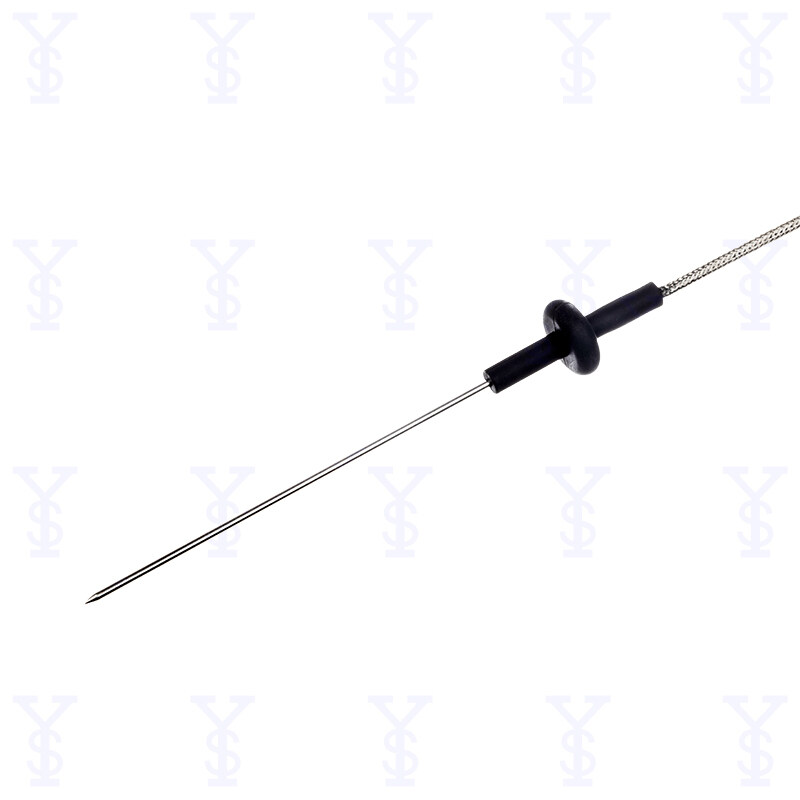Errore di furmatu di email
emailCannotEmpty
emailDoesExist
pwdLetterLimtTip
inconsistentPwd
pwdLetterLimtTip
inconsistentPwd


Understanding the "Sonde de Température NTC": A Comprehensive Guide
In the realm of temperature measurement and control, the "sonde de température NTC" (NTC temperature probe) holds a significant place. This blog post will delve into the intricacies of NTC temperature probes, exploring their functionality, applications, advantages, and much more. Whether you are a novice or an expert, this comprehensive guide will provide you with valuable insights into the world of NTC temperature sensors.
What is a Sonde de Température NTC?
NTC stands for Negative Temperature Coefficient. An NTC temperature sensor is a type of resistor whose resistance decreases as the temperature increases. This characteristic makes NTC sensors particularly useful for a variety of temperature measurement and control applications.
How NTC Temperature Sensors Work
NTC temperature sensors are made from semiconductor materials. When the temperature increases, the semiconductor's resistance decreases, allowing more current to pass through. This change in resistance is measured and converted into a temperature reading. The relationship between temperature and resistance in an NTC sensor is nonlinear, which requires careful calibration and precise measurement equipment.
Applications of NTC Temperature Sensors
NTC temperature sensors are widely used in various industries due to their accuracy and reliability. Here are some common applications:
Automotive Industry
In the automotive industry, NTC sensors are used to monitor engine temperature, coolant temperature, and air conditioning systems. Accurate temperature monitoring ensures optimal engine performance and prevents overheating.
Medical Devices
Medical devices such as incubators, patient monitoring systems, and diagnostic equipment rely on NTC sensors for precise temperature control. Accurate temperature readings are crucial in medical applications to ensure patient safety and effective treatment.
Home Appliances
NTC temperature sensors are commonly found in home appliances like refrigerators, ovens, and air conditioners. They help maintain the desired temperature, ensuring energy efficiency and optimal performance.
Industrial Applications
In industrial settings, NTC sensors are used for process control and monitoring. They are essential in industries such as food and beverage, pharmaceuticals, and chemical manufacturing, where precise temperature control is vital for product quality and safety.
NTC temperature sensors are also used in BBQ grills to monitor and control the cooking temperature. This ensures that food is cooked evenly and to the desired doneness, enhancing the grilling experience.
Advantages of NTC Temperature Sensors
NTC temperature sensors offer several advantages that make them a preferred choice in many applications:
High Accuracy
NTC sensors provide highly accurate temperature measurements, making them suitable for applications that require precise temperature control.
Wide Temperature Range
NTC sensors can operate over a wide temperature range, from -50°C to 150°C, making them versatile for various applications.
Fast Response Time
NTC sensors have a fast response time, allowing for quick temperature changes to be detected and addressed promptly.
Cost-Effective
NTC sensors are relatively inexpensive compared to other temperature sensing technologies, making them an economical choice for many applications.
Compact Size
The small size of NTC sensors allows them to be easily integrated into compact and space-constrained environments.
How to Choose the Right NTC Temperature Sensor
Selecting the right NTC temperature sensor for your application involves considering several factors:
Temperature Range
Ensure that the sensor can operate within the temperature range required for your application.
Accuracy Requirements
Consider the accuracy needed for your application. Different NTC sensors offer varying levels of accuracy.
Response Time
Choose a sensor with a response time that meets the demands of your application.
Environmental Conditions
Consider the environmental conditions in which the sensor will operate, such as humidity, vibration, and exposure to chemicals.
Mounting and Packaging
Select a sensor that can be easily integrated into your system, considering factors like size, shape, and mounting options.
Installation and Calibration of NTC Temperature Sensors
Proper installation and calibration are crucial for accurate temperature measurements. Here are some tips:
Installation Tips
- Positioning: Place the sensor in a location that accurately reflects the temperature of the medium being measured.
- Connection: Ensure proper electrical connections to avoid signal interference.
- Protection: Protect the sensor from physical damage and environmental factors that could affect its performance.
Calibration Tips
- Reference Standards: Use calibrated reference standards for comparison.
- Calibration Points: Calibrate at multiple temperature points within the sensor's operating range.
- Regular Calibration: Perform regular calibration to maintain accuracy over time.
Future Trends in NTC Temperature Sensor Technology
The field of NTC temperature sensors is constantly evolving. Here are some future trends to watch for:
Enhanced Accuracy and Stability
Advancements in materials and manufacturing techniques are expected to improve the accuracy and stability of NTC sensors.
Miniaturization
Continued miniaturization will enable NTC sensors to be used in even more compact and space-constrained applications.
Integration with IoT
The integration of NTC sensors with the Internet of Things (IoT) will enable real-time temperature monitoring and control in smart devices and systems.
Advanced Signal Processing
Improvements in signal processing algorithms will enhance the performance of NTC sensors, allowing for more precise and reliable temperature measurements.
New Applications
As technology advances, new applications for NTC sensors will emerge, further expanding their use in various industries.
Conclusion
The "sonde de température NTC" is a versatile and reliable temperature sensing technology with a wide range of applications. From automotive and medical devices to home appliances and industrial processes, NTC sensors play a crucial role in temperature measurement and control. Their high accuracy, wide temperature range, fast response time, and cost-effectiveness make them an ideal choice for many applications. As technology continues to advance, we can expect even greater improvements and new applications for NTC temperature sensors. Whether you are looking to implement NTC sensors in your current systems or exploring new possibilities, understanding their functionality and benefits will help you make informed decisions.
Incorporating NTC temperature sensors into your projects can significantly enhance performance and reliability. As we have seen, their applications are vast and varied, making them an indispensable component in modern technology. With ongoing advancements and increasing integration with IoT, the future of NTC temperature sensors looks promising, paving the way for more innovative and efficient solutions in temperature measurement and control.
So, whether you are working on a new automotive design, developing cutting-edge medical devices, or simply looking to improve the performance of your home appliances, consider the benefits of using NTC temperature sensors. Their proven reliability and accuracy make them a valuable addition to any temperature-sensitive application.

